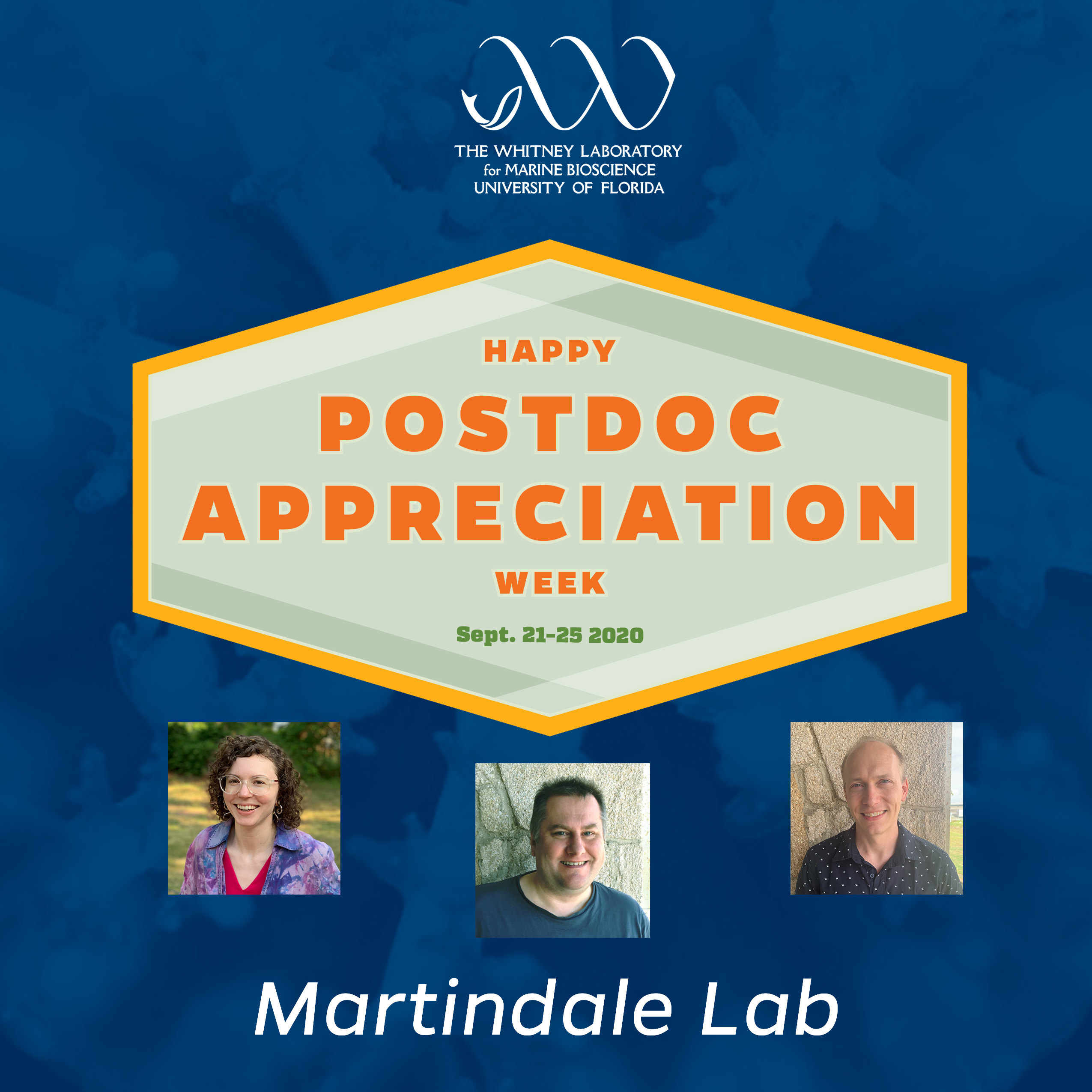 The Whitney Laboratory for Marine Bioscience
The Whitney Laboratory for Marine Bioscience

Please join us in celebrating Whitney Laboratory Postdocs and the contributions they make to the lab, U.S. research and discovery! Today we spotlight postdocs in the Martindale Lab.
Alisson joined Dr. Mark Martindale's lab in 2019 and is working with a variety of marine invertebrates studying life history evolution, adult regeneration, and the molecular basis for axis fixation during development.
Allison received her B.A. in Biology from Reed College, where she worked on spider gastrulation, sparking a love of embryos and fascination with the evolution of development. She received her Ph.D. from Duke University, where she worked in the labs of Greg Wray and Dave McClay on early cell lineage specification in a sea urchin that has evolved a way to skip over the feeding larval life stage.
Fredrik joined the Martindale Lab in 2018 as a Research Scholar and is working with Dr. Martindale on cell fate specification and cellular engineering in the cnidarian Nematostella vectensis.
Fredrik is a molecular biologist whose main research interest is to understand cell signaling during development. He received his BSc and PhD in Molecular biology from Umeå University in Sweden under the supervision of Pr. Ruth H. Palmer. The main of focus of his research during his PhD has been cell signaling during embryo development and in cancer. More specifically to understand the Alk RTK signaling pathway in the fruit fly Drosophila melanogaster and in human cancer.
Radim joined the Martindale Lab as a Research Scholar in 2019 where he is investigating the formation of body axes in cnidarians, acoels and other early branching marine invertebrates in order to achieve better understanding of the evolution of animal body plans.
Radim received his Bachelor’s degree in biology from the Charles University in Prague, Czech Republic in 2010 for a thesis on the ontogeny of beetle horns. Two years later, he achieved a master’s degree at the same university for investigating a putative novel member of Wnt signaling pathway in the regulation of neuroblast migration in the nematode Caenorhabditis elegans. He then started his graduate studies in Kozmik’s lab at the Czech Academy of Sciences, where he researched the role of Wnt/β-catenin signaling in neurodevelopment, segmentation and gut differentiation of the marine polychaete annelid Platynereis dumerilii, for which he was awarded a doctorate by the Charles University in Prague earlier this year. In his spare time, he likes to travel to various parts of the world, where he photographs the wildlife, extends his beetle collection and seeks novel experience. He also enjoys reading, playing guitar, riding the bicycle and many other sports and enjoys the company of his friends and family.